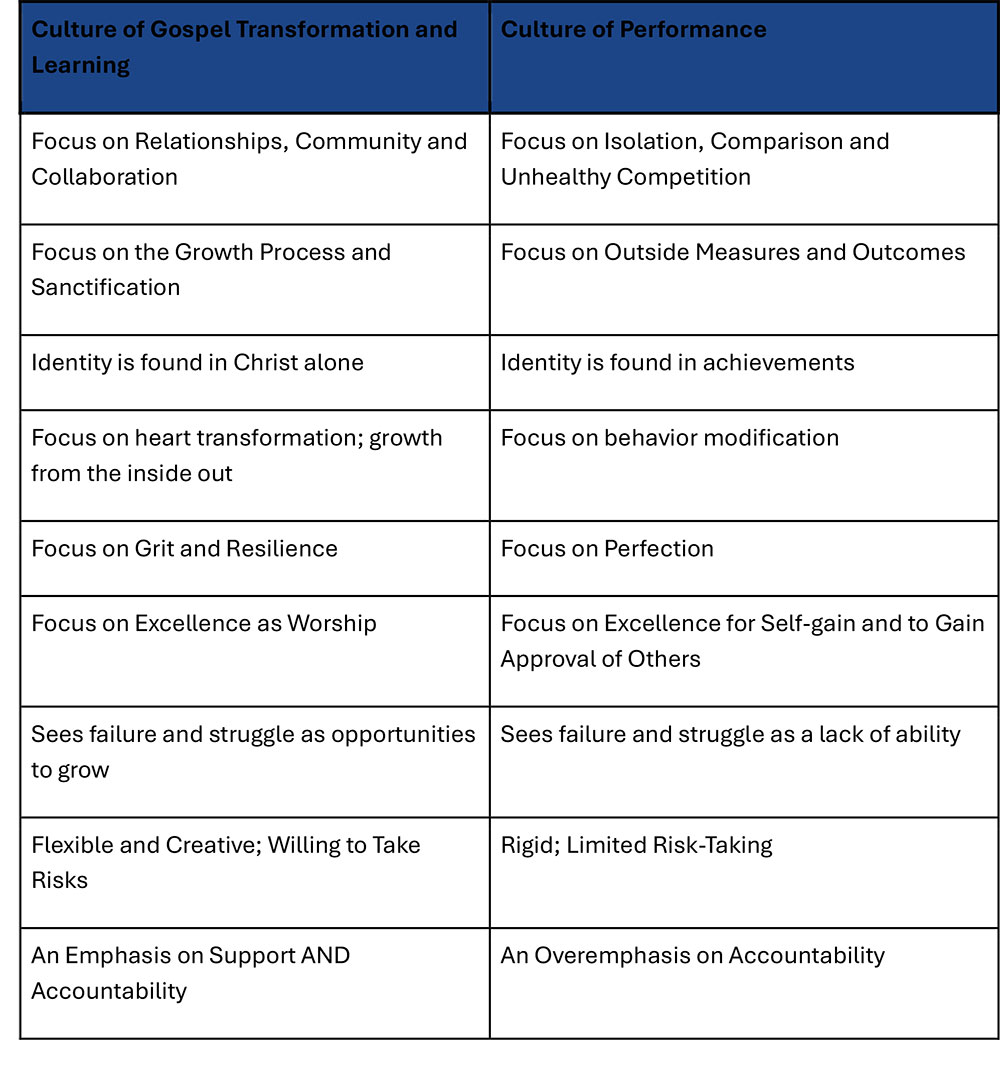Culture of Gospel Transformation & Learning
January 26, 2025
By Heather Nerem, DMC Head of Academics
Our school exists to “equip minds and nurture hearts to impact the world for Christ.” The simple way of saying this is - we want each child, while they are here, to meet and be changed by Jesus, and for that change to change others. This is called the gospel. It is a simple but profound message that we all have a problem called “sin” that we can’t fix ourselves, and the only solution is to be changed by a relationship with Jesus, so that we can experience the goodness of God and show that goodness to others. We do that as a school, because the Holy Spirit uses what a child learns and how he/she learns it to shape who they are. That’s what we care about the most - not what a child does but who they are becoming!
This idea of who a child is becoming is emphasized in our philosophy of education: Des Moines Christian School is a community that cultivates the environment, relationships, instruction, experiences, policies, and procedures in which the Holy Spirit has the greatest freedom to nurture the soul of each student so that their minds and thoughts, as well as their passions and identity, are anchored in the truth and love of God and His word, equipping them to have a lifelong impact on the world for Christ as whole, fully-developed disciples. (Matthew 22:34-40; Mark 12:28-33; Luke 10:27-28)
To fulfill our mission and our philosophy of education, we believe that we must have a culture of gospel transformation and learning versus a culture of performance. The chart below outlines the difference between these two types of cultures.
 During our January PD days, teachers shared testimonials with their colleagues on how they are intentionally fostering a culture of gospel transformation and learning. Alayna Kester, Middle School Math Interventionist, shared how she is reframing failure and struggle within her classroom.
During our January PD days, teachers shared testimonials with their colleagues on how they are intentionally fostering a culture of gospel transformation and learning. Alayna Kester, Middle School Math Interventionist, shared how she is reframing failure and struggle within her classroom.
Mrs. Kester stated, “We must learn to see failure and struggles as opportunities to learn.” She went on to share about how James Dyson, inventor of the Dyson vacuum cleaner, built 5,126 failed prototypes over four years before achieving the perfect design. He was bold enough to say that we are to enjoy failure and learn from it, as he believed you never learn from success.
Kester emphasized the importance of viewing struggles/failures not as a judgement about your ability, but as stepping stones to mastery. Success comes as a result of getting back up after struggles; failure and struggle become less of a setback and are more a natural part of the learning process. She encouraged teachers to normalize struggle as part of the learning process by modeling vulnerability of their own struggles with the students.
She also encouraged teachers to praise effort and persistence:
- You worked really hard on this. I can see how you applied what we learned!
- I noticed you kept trying even when that problem was tough.
- I see where you got off track; let’s correct it together.
Lastly she emphasized the importance of shifting the conversation from grades to growth:
- Ask: What did you learn from this? What would you try differently next time?
- Track Progress: Show how they’ve improved from first draft to final product or from pretest to post test.
- Positive self talk - The power of “yet”: Replace “I’m not good at math” with “I’m not good at math yet.” “I can’t do this” to “I can’t do this yet.”
- Celebrate small wins
She anchored her testimonial to the scripture from Romans, “ We can rejoice, too, when we run into problems and trials, for we know that they help us develop endurance. And endurance develops strength of character, and character strengthens our confident hope of salvation. And this hope will not lead to disappointment. For we know how dearly God loves us, because he has given us the Holy Spirit to fill our hearts with love.” (Romans 5:3-5 NLT)
This is only one small look into the learning that occurred during these professional development days! We are truly blessed to have committed and dedicated teachers who are focused on our mission, who believe in our philosophy of education and who are willing to be transformed into more whole, fully-developed disciples for the benefit of each child at DMC. Only our powerful, mighty and generous Lord could orchestrate such a community.